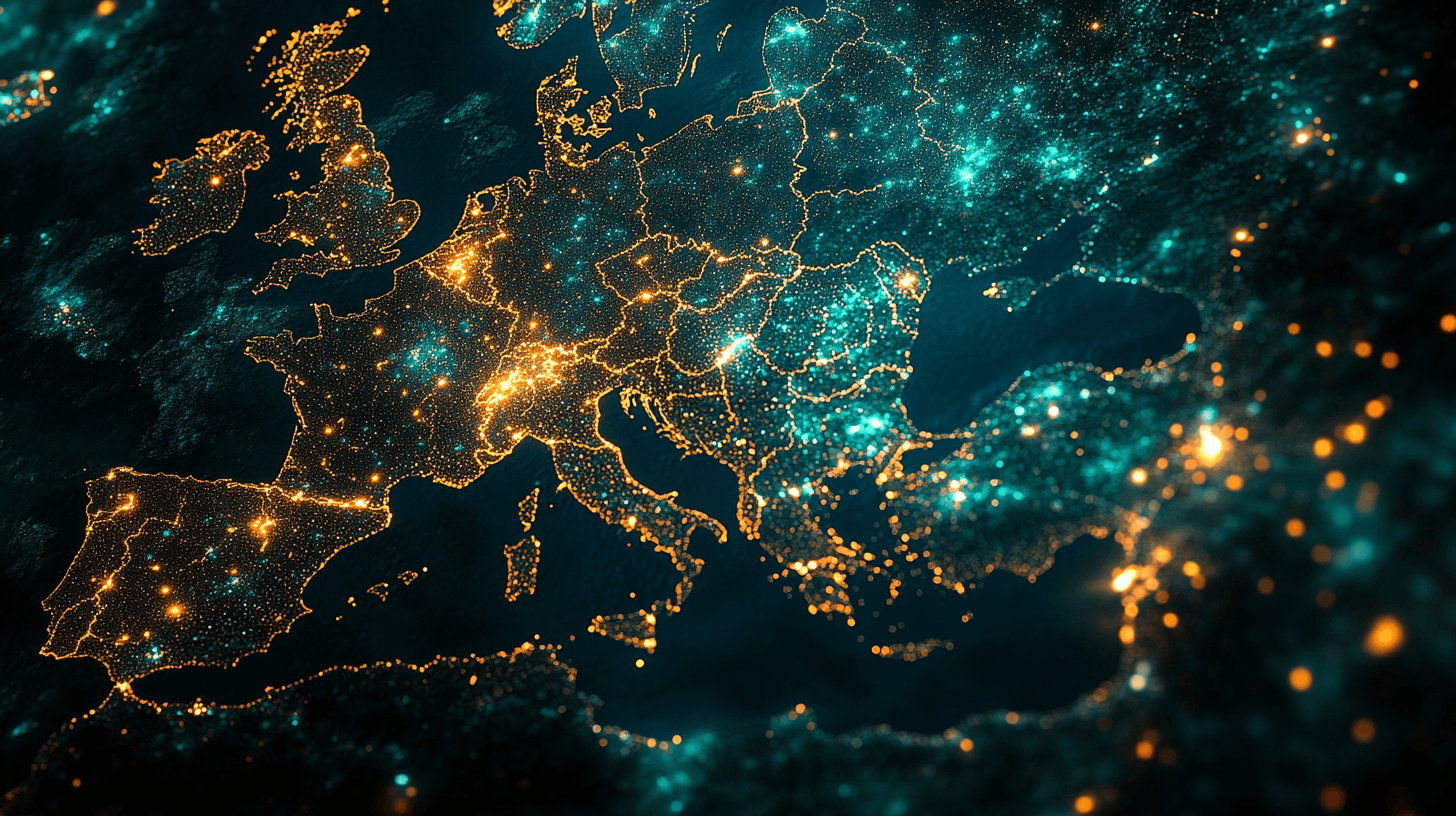European AI attracts money and support–But is it enough?
Planned investments promise to support the European AI ecosystem. Let’s take stock of the current situation.
Published on February 19, 2025
.png&w=2048&q=75)
© AI Action Summit
Mauro swapped Sardinia for Eindhoven and has been an IO+ editor for 3 years. As a GREEN+ expert, he covers the energy transition with data-driven stories.
During last week’s AI Summit in Paris, European Commission's president Ursula von der Leyen announced InvestAI, mobilizing €200 billion to support European AI. This money must support the construction of four gigafactories to train AI models. The announcement came amid an eventful–to say the least–start of 2025 for AI developments.
The highlights are the rise of the Chinese DeepSeek, the launch of Mistral AI's lightning-fast assistant Le Chat, and last Monday’s unveiling of Elon Musk’s xAI Grok 3. At the same time, technological developments are entangled with geopolitical ones. In a way, InvestAI is the EU’s answer to the American €500 billion Stargate project, also constructing new AI infrastructure.

Behind the Figures
In Behind the Figures, we take a deep dive into numbers. Using charts and graphs, we break down figures and provide context to help you make more sense of them.
European AI lags behind
As things stand, Europe finds itself behind in this race. If American players such as OpenAI’s ChatGPT, Google’s Gemini, and Anthropic’s Claude dominate the market, China showed it can run fast in creating affordable and capable AI models such as DeepSeek.
“I firmly believe in investing in the fundamentals, such as academia and education, and the rest will follow. Europe doesn’t have any of the large chip manufacturers the US has,” says Patrick Polak, managing partner of the venture capitalist fund Newion. “Growing companies that can replace American big tech companies in Europe is nearly impossible. Therefore, investing in academia and deep tech is the way forward,” he continues.

Patrick Polak
Managing partner and founder of Newion Partners BV
He has been active in VC funding for the past 28 years. In 2022, Newion launched a venture fund to invest in business-to-business startups developing AI.
The state of European AI funding
AI investments in Europe have increased over the past few years, driven by the rise of generative AI–models that create text, pictures, or videos. In 2024, European AI companies raised $7.7 billion, which, according to The French AI Report 2024, represents 17.1% of total European venture capital (VC). In the same year, US counterparts raised $80.7 billion.
AI funding has soared over the past few years, going into AI-enabled tools and large language model (LLM) firms. The analysis also shows how Investments span the whole funding spectrum, with funding happening in all stages.
Yet, these capital investments are unevenly distributed across Europe. Since 2020, the United Kingdom, France, and Germany have made up 70% of the investments.
Who are the top players in the European AI ecosystem?
The French Mistral AI is Europe’s most valued AI company, having reached a €5.8 billion valuation and raised over €1 billion. Founded in 2023 by former Google DeepMind and Meta AI experts, the firm quickly became a contender in the AI race. Such ambition was reinforced after the launch of its Le Chat AI assistant, which outperformed ChatGPT and Anthropic’s AI model Claude.
Another significant player is the German Aleph Alpha. After raising $500 billion, the company moved away from training its LLMs to work on its gen-AI operating system. This system helps organizations such as corporations and governments roll out AI. The company's AI capabilities span different industries, helping to optimize processes in health, finance, and public administration.
Europe’s most well-funded defense tech startup, Helsing, is also an AI firm. The Munich-headquartered firm, valued at €5 billion, develops AI-based defense software. It processes data from sensors and weapon systems to offer real-time battlefield intelligence. Its technology has also been deployed to boost Ukrainian drones' AI capabilities. In the Netherlands, Axelera AI stands out as one of the most promising startups.
Champions supporting European AI
In addition to InvestAI funding, Paris was also the place to unveil the EU AI Champions initiative. Led by investment company General Catalyst, the plan’s cornerstone is a €150 billion investment in European AI. The initiative has the backing of Germany’s Deutsche Bank, Mistral AI, Helsing, and Spotify, among others.
Industry leaders called for a simplified AI regulation as part of this initiative. While setting a benchmark for AI safety, the EU AI Act has been criticized for stifling innovation in the space. “Entrepreneurship goes where opportunities and entrepreneurs shouldn’t be pushed in a certain direction. The market decides what succeeds, not regulation,” underlines Polak.
The future of European AI
Since 2019, the investor has seen companies employ AI. In 2022, Newion launched a fund to support AI-based business-to-business startups specifically. Since then, AI has become a primary focus of the VC firm activities.
“Nowadays, everyone is using AI, which has become a building block for developing technology, even if that company relies on third-party AI models,” he underlines. Overall, Polak supports all forms of investment into European AI.
“These investments create jobs, and the more we can use, the better,” he underscores. And in terms of headcount, the sector has been booming. According to Dealroom and Tech.eu AI businesses employed over 349,000 workers in Europe, a 168% increase from 130,000 in 2020.
France wants to lead European AI in the future. Before the Paris summit, President Emmanuel Macron announced €109 billion in AI investments from French and foreign private investors. By promoting the offer of cheap, stable,low-carbon nuclear energy, Paris is positioning itself at the forefront of Europe’s bid to stay in the race.
